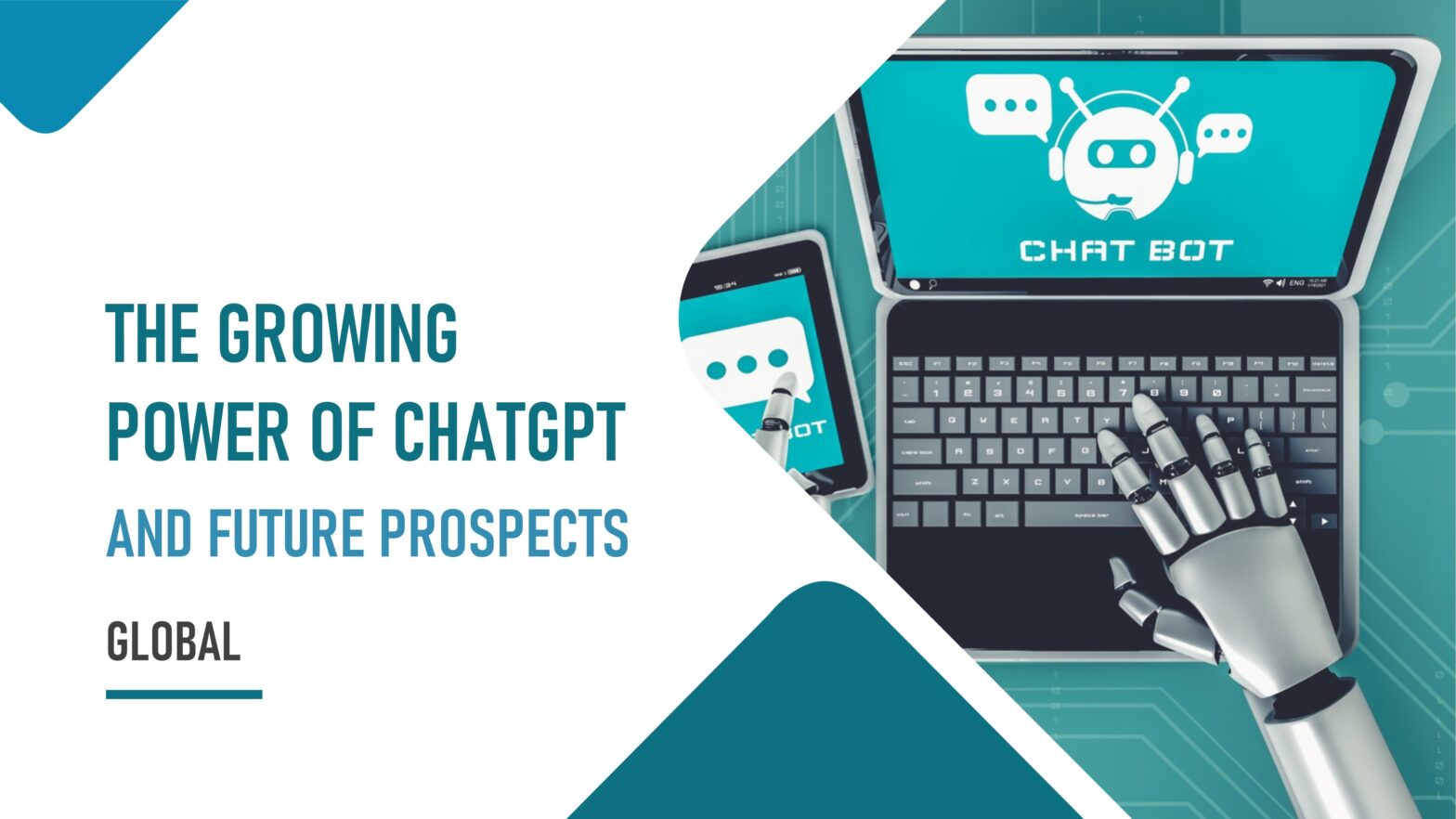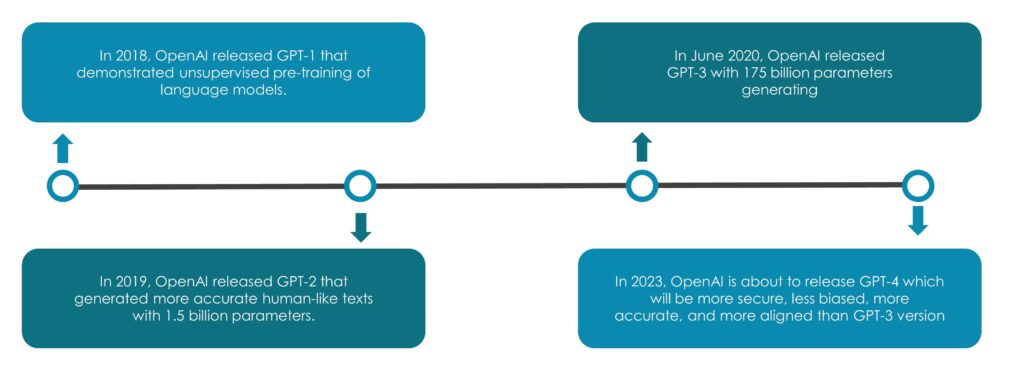
The Growing Power of ChatGPT & Future Prospects
Introduction to ChatGPT
ChatGPT is a newly launched AI chatbot that debuted in November 2022. Open AI, a San Francisco-based artificial intelligence (AI) business, created the chatbot. It is an abbreviation for Chat Generative Pre-Trained Transformer. ChatGPT has made headlines since its inception due to the jobs it can do.
ChatGPT is created in such a way that it generates answers that humans would desire to know. It responds to human queries in a conversational tone by providing realistic answers. It will assist users in planning a party, providing thorough guidance in their school/college tasks, writing programming, etc. Furthermore, it has demonstrated its strength by passing the legal bar exam as well as Google’s coding test.
GPT is an abbreviation for Generative Pre-training Transformer. As the name implies, generative is a model that can generate text. The term “pre-training” signifies that the model contains massive data. The transformer in GPT refers to the architecture of the AI model. Therefore, ChatGPT means this AI can handle lengthy and short queries. It can also generate text of varied lengths based on the user’s demand.
Timeline of ChatGPT

In 2018, OpenAI released the first version of GPT, GPT-1, which was a neural network designed to generate human-like text.
Further, in 2019, OpenAI released GPT-2, an improved version of GPT that was larger than its predecessor, with 1.5 billion parameters. They gained millions of users with the release of its latest versions.
OpenAI introduced another version, GPT-3 in June 2020. This version had 175 billion parameters and was capable of generating highly diversified text.
Importance of ChatGPT
Leveraging the power of ChatGPT can not only help businesses to save time but also enhance efficiency and reduce costs. Automating repetitive tasks using ChatGPT and allocating time and focus to important activities can help in adding value to the business. Automation can further help in minimizing errors and promote cost efficiency by reducing labor costs. Additionally, this technology can help businesses to have a competitive advantage and manage competition better.
Some of the application of ChatGPT includes:
SEO, Content Writing, & Content Marketing
ChatGPT can aid in making the process of keyword research practically seamless. Users will just need to enter some of their target keywords and in return, ChatGPT will provide them with a list of related keywords. It can also be used for understanding the competition for different keywords and developing SEO-relevant titles. Businesses can leverage the power of ChatGPT for generating their content marketing strategy. It can be used by writers for brainstorming and writing content for emails, ad copies, social media posts, etc. However, brands must refrain from using ChatGPT for writing content for blogs and websites as according to Google’s Search Advocate, John Mueller, “content automatically generated with AI writing tools is considered spam, according to the search engine’s webmaster guidelines”.
Translation
ChatGPT can be extremely useful for linguists and professional translators who need to translate large amounts of data rapidly. As a result, ChatGPT helps them take on more work and effectively manage time-sensitive projects. Aside from providing fast speed, this technology would help to make translation services more accessible and affordable.
Human Resources
ChatGPT, an AI-powered chatbot, can provide seamless employee assistance by swiftly answering the majority of their questions and addressing their complaints. This technology can also be utilized to collect critical personnel information from a database and make beneficial recommendations for improving business procedures.
Sales & Lead Generation
Understanding the target audience is the first step in using ChatGPT for sales. Businesses can utilize this data to create marketing and sales campaigns that are customized to their target audience. ChatGPT can be used to communicate with clients in a tone, style, and vocabulary that is appropriate for their needs.
Developing chatbots and employing them to interact with clients might assist organizations in generating and qualifying potential leads. They can also use chatbots to acquire information about clients and inform them about the products and/or services that they offer. ChatGPT’s powerful natural language processing technology allows for human-like interaction, boosting the chances of lead conversion.
Managing Finances
Financial professionals often get involved in repetitive activities. These activities can range from data entry and the creation of reports to providing email responses. ChatGPT can help professionals and businesses by automating these tasks. It can also save time by analyzing huge amounts of data and providing businesses with relevant and useful recommendations along with personalized financial plans for customers. Businesses can also benefit from ChatGPT’s ability to summarize data and generate reports and presentations containing relevant graphs, text, charts, tables, etc. based on the input given. Furthermore, ChatGPT can be used to identify fraud by monitoring patterns and deviations.
Customer Service
The importance of ChatGPT in customer service greatly lies in its ability to scale, perform multiple tasks simultaneously, intuitively interact, and keep up with growing demand quickly. It can help businesses in understanding the needs and preferences of each customer through an authentication process. This detailed information about individual customers can then be used for enhancing customer experience and introduce personalization. Furthermore, ChatGPT can use this data to aid businesses in upselling and cross-selling to customers. Using ChatGPT for customer service can ensure 24/7 availability.
Data Sources: Jagran Josh, Rapidmation, Search Engine Journal, Renaissance Translations, Techrseries, Marble Flows
Read Now- Corporate Movement in ChatGPT
Must Read


